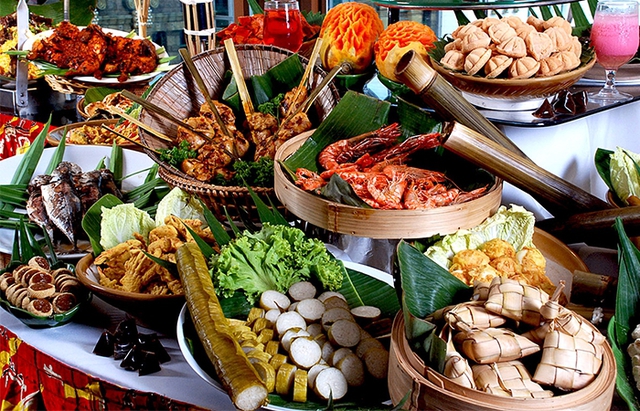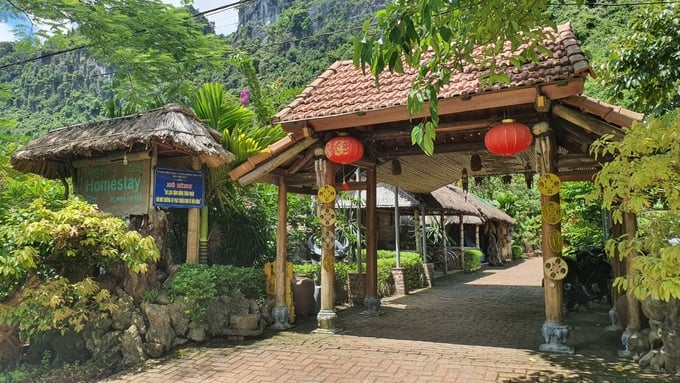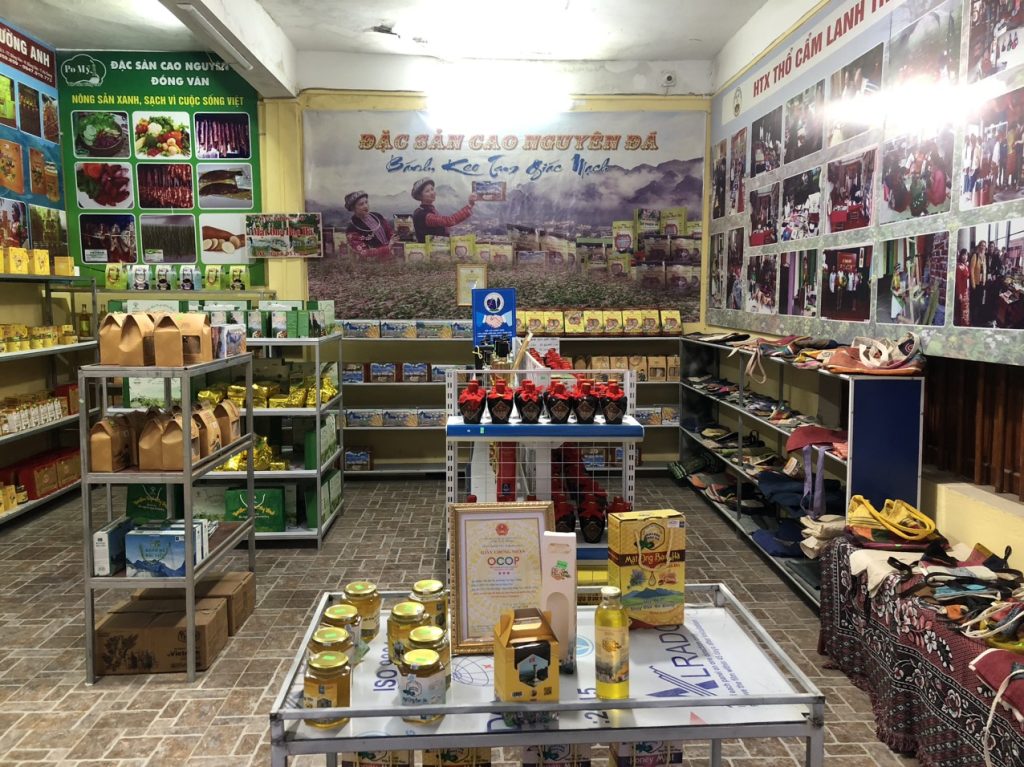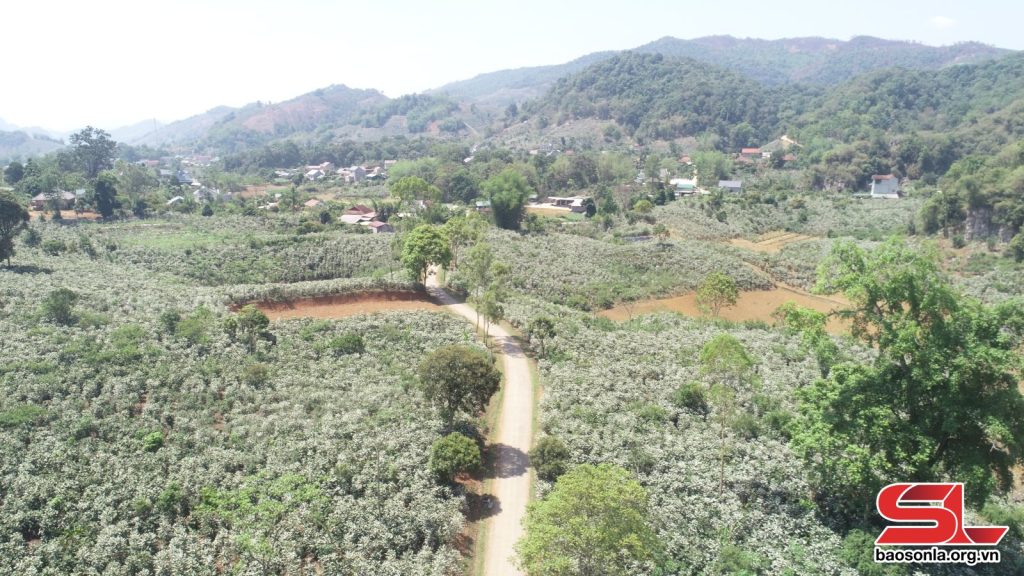Hanoi continues to place a strong focus on deep processing, enabling the production of clean and environmentally friendly products. The primary focus is to ensure high quality for local consumption and expanding exports.
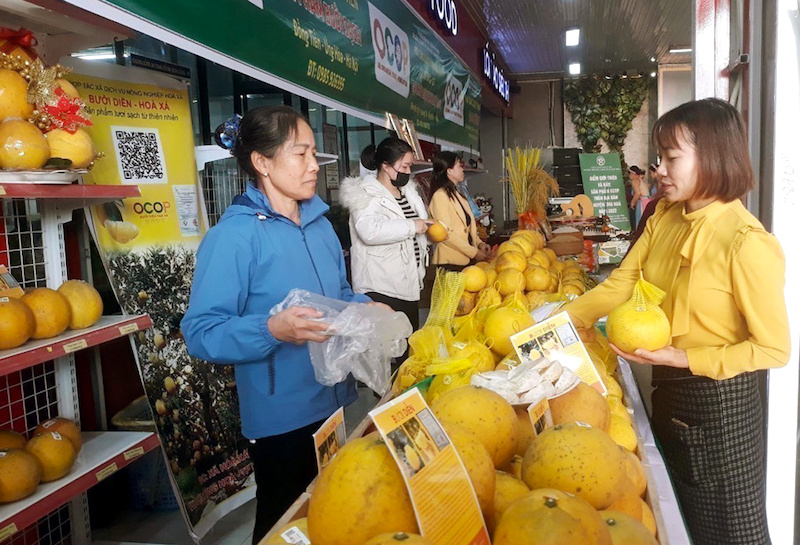 |
Tran Cong Thuy, a business household in Doai Village, Xuy Xa Commune in My Duc District, specializes in producing and trading traditional liquors. Thuy mentioned that his two products, Dao Vien 35% Vol and 30% Vol sticky rice wine, were registered this year for evaluation and ranking as Hanoi’s OCOP products.
“We have invested in modern machinery while also employing traditional fermentation methods to ensure both food safety and the preservation of the wine’s authentic flavor,” said Thuy.
Hoang Xuan Toan, the owner of the Xuan Huong brand steamed rice rolls and pork bologna shop in Thanh Tri Ward, Hoang Mai District, said that the city’s OCOP Product Classification and Evaluation Council show significant interest in deep-processed agricultural products. Consequently, they have prioritized investing in their production processes to reach food safety standards.
“The shop’s three products, including Com sticky rice flakes, rib flakes, and pork bologna, were submitted for the evaluation and ranking of Hanoi’s OCOP products,” Toan said.
For their products to be highly rated, OCOP producers like Thuy and Toan have made great efforts to overcome limitations and improve their products according to the criteria.
Nguyen Van Chi, Deputy Head of the Hanoi Coordination Office of the New Rural Construction Program, said: “OCOP units have consistently made improvements in their quality standards, ensuring strict adherence to food safety and hygiene measures. They have also devoted efforts to researching and designing optimal packaging solutions while developing strong product brands.”
Over the past four years, the city has recognized 2,167 OCOP products, accounting for 22% of the country’s total, according to the Hanoi Coordination Office of the New Rural Development Program.
In Hanoi’s OCOP product structure, the proportion of four-star products is remarkably high, accounting for up to 67%, which surpasses the national average of 32%.
This indicates that Hanoi’s OCOP products have not only experienced rapid growth in quantity but have also demonstrated notable improvements in quality, effectively putting the city among the top localities in implementing the OCOP program so far.
Expanding market access
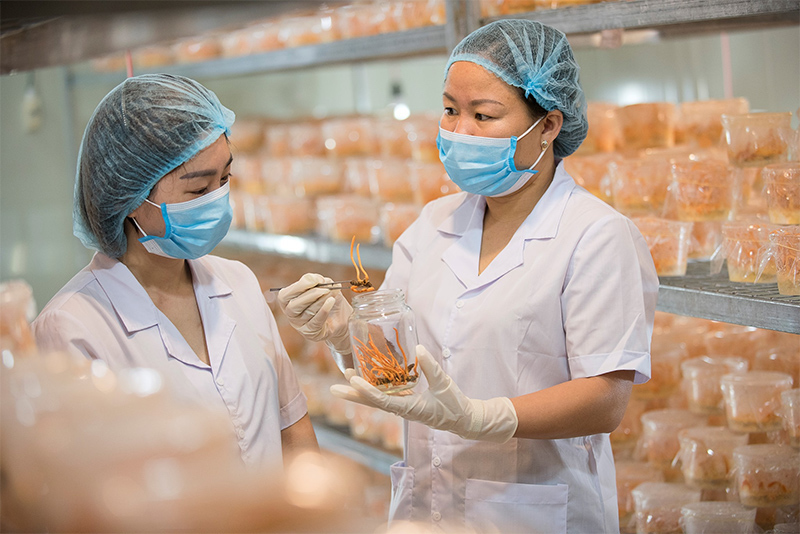 |
At the OCOP 2022 Certification Award Ceremony held in Hanoi in June, Thien Phuc Herb Joint Stock Company (Chuong My District) had four four-star OCOP-certified products and one candidate for a five-star rating.
Nguyen Thi Nhan, the company’s representative, stated that the company has developed and refined a high-tech process for cultivating Cordyceps militaris. Furthermore, they have expanded their operations to two farms outside Hanoi in Chuong My District and Dalat City, Lam Dong Province in the Central Highlands. The combined area of these farms is 15,000 square meters, with the Phu Nam An Commune farm in Chuong My District covering 10,000 square meters. All Cordyceps militaris products are manufactured in accordance with GACP-WHO standards and are trademarked.
Hong Van Flower, Ornamental and Service Cooperative (Thuong Tin District) had its first OCOP standard product, “Hong Van Bitter Melon Tea”, five years ago, ordered by many supermarkets and grocery stores in the city.
Nguyen Van Tu, chairman and director of the cooperative, said that in 2022, the cooperative selected three new products, “Ancient Buffalo Tea”, “Golden Camellia Flower Tea”, and “Hong Van Rural Tourism Service Point”, to seek OCOP four-star rating.
The OCOP enterprises have constantly improved the quality of their products. Many products have been exported, including noodles from Minh Duong Food JSC, ceramics from Quang Minh Ceramic JSC, and cordyceps militaris from Thien Phuc Herb JSC.
In addition to evaluation and recognition, the city has organized many activities to link supply and demand for OCOP products. In 2023, the city’s OCOP products will participate in an organic fair in Germany for the first time.
Ta Van Tuong, Deputy Director of the Hanoi Department of Agriculture and Rural Development, said that Hanoi attaches great importance to organizing events, fairs, and conferences for business matching and showcasing OCOP products.
He added that so far, Hanoi has opened 85 showrooms to promote OCOP products. According to the action plan of the OCOP program in 2021-2025, the city also plans to build five creative design centers by the end of this year to sell local products and promote handicraft villages linked to tourism in some key areas.
The centers will be located in Bat Trang (Gia Lam District), Duyen Thai (Thuong Tin District), Chuyen My (Phu Xuyen District), Phu Vinh (Chuong My District), and Duong Lam (Son Tay City).
Support for capacity building
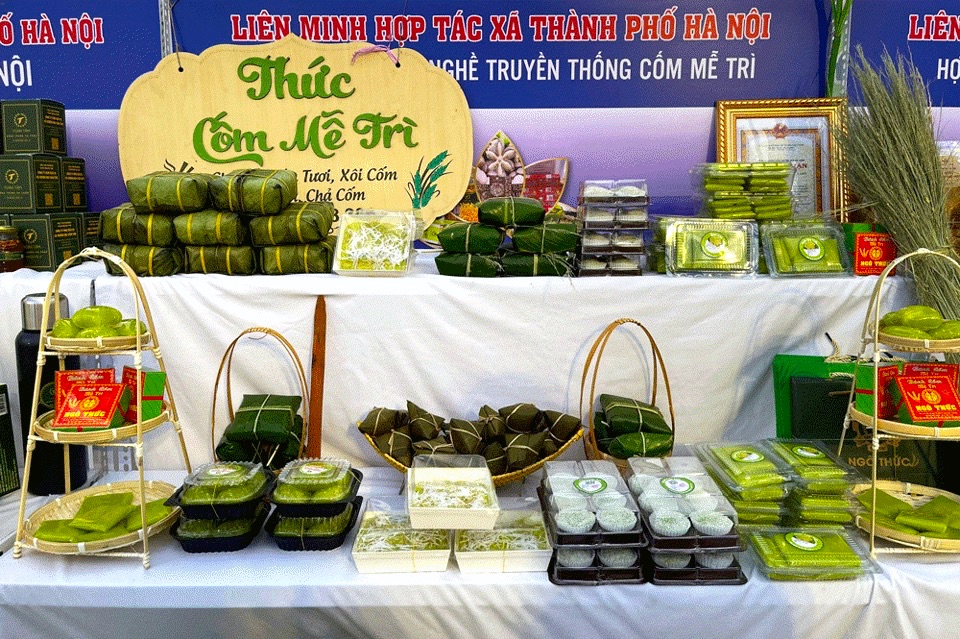 |
Nguyen Minh Tien, the Director of the Agricultural Trade Promotion Center under the Ministry of Agriculture and Rural Development, stated that the OCOP program has been extensively implemented in districts and urban areas, effectively harnessing the city’s potential. Hanoi boasts over 1,340 handicraft villages, representing approximately 20% of the total nationwide. These villages possess distinctive culinary and cultural characteristics contributing to the program’s success.
However, Tien noted that the city needs to focus on consolidating and improving the quality of recognized OCOP products. At the same time, there are specific plans to identify and support four- to five-star products and three- to four-star products.
For three-star OCOP products, the city should support standardization in terms of process and quality to ensure stability. “OCOP products with four stars or higher should aim to meet international standards/stable quality based on the application of science and technology,” Tien said.
Tien recommends supporting the development of enterprises’ capabilities, especially in innovation and creativity, and building a product ecosystem catering to domestic and international markets.
Additionally, he emphasized the need for enhancing product design, packaging, and storytelling to foster product differentiation and establish distinct brands for each company and its respective products.
Ngo Van Ngon, deputy head of the Hanoi Coordination Office of the New Rural Construction Program, urged sub-municipalities to continue to pay attention and support local units in developing and improving their products. “They should increase promotional activities through e-commerce platforms and social media,” he said.
“The city needs to promote trade and consumption on the e-commerce platform, especially on social networks, where units can tell stories about their products, creating a close connection between units / OCOP products with customers,” he stressed.
The director of the Agricultural Trade Promotion Center stressed that in order to further develop the OCOP program in 2023, Hanoi should also focus on exporting OCOP products by improving the application of science and technology in production, aiming for 3-5% of OCOP products to achieve five stars.
The development of OCOP products is intricately linked to the growth of tourism in traditional handicraft villages, serving as a catalyst to attract international visitors and promote tourism, he said.
Phi Khanh
Economic and Urban Newspaper – hanoitimes.vn

